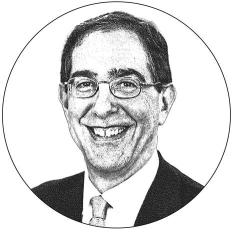This year, Princeton’s orientation program for incoming undergraduates included a new module on free speech. I spoke to the entering students at that session. Here is an abridged version of what I said. (You can read the full version online at https://president.princeton.edu/blogs/remarks-freshman-orientation-session-free-expression.) — C.L.E.
My first opportunity to welcome a new class to campus usually occurs at Opening Exercises. I rearranged my schedule, however, to join this Orientation session because the topic — free speech on campus — is important to what we do as a University and to me personally.
I want to start by calling your attention to the University’s statement on free expression. The statement “guarantees all members of the University community the broadest possible latitude to speak, write, listen, challenge, and learn.” That is a bold and powerful commitment.
It means that you have the right to make arguments and statements that are discomforting to others — including to me. It also means that all students should expect that during their time at Princeton they will encounter some arguments and statements that are discomforting to them.
I want to say a bit about why we regard this commitment as fundamental to education and research at Princeton — about why, in other words, we accept the discomfort that I just mentioned, and even believe that the discomfort can sometimes generate understanding and insight.
First, we believe that the free exchange of ideas is essential to the pursuit of truth. Very unpopular or shocking arguments may sometimes prove meritorious. And even when arguments are wrong, rebutting them can deepen our understanding of our own positions and strengthen our capacity to defend them.
Second, while we recognize that speech can sometimes cause real injury, we do not trust any official — again, including me! — to decide which ideas or opinions should be suppressed and which should not. Censorship has a lousy track record: Even the most well-intentioned leaders or administrators tend eventually to protect their own values, interests, or biases from criticism.
There are some carefully limited exceptions to the freedom of speech, both on our campus and under the Constitution. Some of these are “time, place, and manner” restrictions. These restrictions are “content-neutral.” They do not limit what you can say, but when or where you can say it.
For example, shouting is a form of speech, but nobody is permitted to interrupt a speaker or a class. It does not matter what someone is shouting — they might be saying some- thing very wise or quite preposterous. The time, place, and manner are inappropriate.
There are also some content-based restrictions that limit, among other things, certain kinds of abusive speech directed at individuals, such as genuine threats or harassment.
These are, however, very narrowly defined exceptions. The general principle is well expressed by Supreme Court Justice Louis Brandeis in Whitney v. California (1927). In that case, he famously said that when “courageous, self-reliant” people are faced with falsehoods and fallacies, the preferred remedy is “more speech, not enforced silence.”
Put simply, in a democracy or at a great research university, the remedy for bad speech should be more speech, not censorship.
I want also to emphasize Justice Brandeis’ reference to Americans as people of “courage” and “self-reliance.” With those words, he recognizes that “free speech” is not simply a right or a gift. It is a demanding practice, one that both requires and helps to build elements of character, including courage and self-reliance.
It takes courage, Justice Brandeis says, to confront rather than suppress views with which we disagree. It builds self-reliance, he suggests, to fend for ourselves in discussion or argument, and to admit when we are wrong, rather than to trust a censor or referee to take care of us.
To these qualities I would add several others, including mutual respect, empathy, and careful listening. Free speech is not, after all, an end in itself. It is necessary to what a university does, but it is in no way sufficient to create the kinds of conversations and discussions upon which our teaching and research depend.
Imagine, for example, a community where people divide into sides and disparage or make fun of the other side’s argument. In such a community, there’s plenty of free speech, but not much learning.
Research and education require not only that we speak, but that we listen to and learn from one another. They require that we respect and benefit from the wide variety of experiences and viewpoints represented on this campus.
That is why I am dismayed when I hear some people treat free speech and inclusivity as contending values, as though we had to choose one or the other. Democracy requires both. So too does education.
To maximize the value of our conversations, everyone must feel respected and included in them, and everyone must feel able to express their opinions. That is how we learn from one another and build relationships across differences.
I hope that you will embrace both free speech and inclusivity as vital constituents of your education here and of democratic societies everywhere. I hope, too, that you will be a courageous, respectful, empathetic, and enthusiastic participant in the vibrant and occasionally discomforting conversations that are so fundamental to collegiate life.

